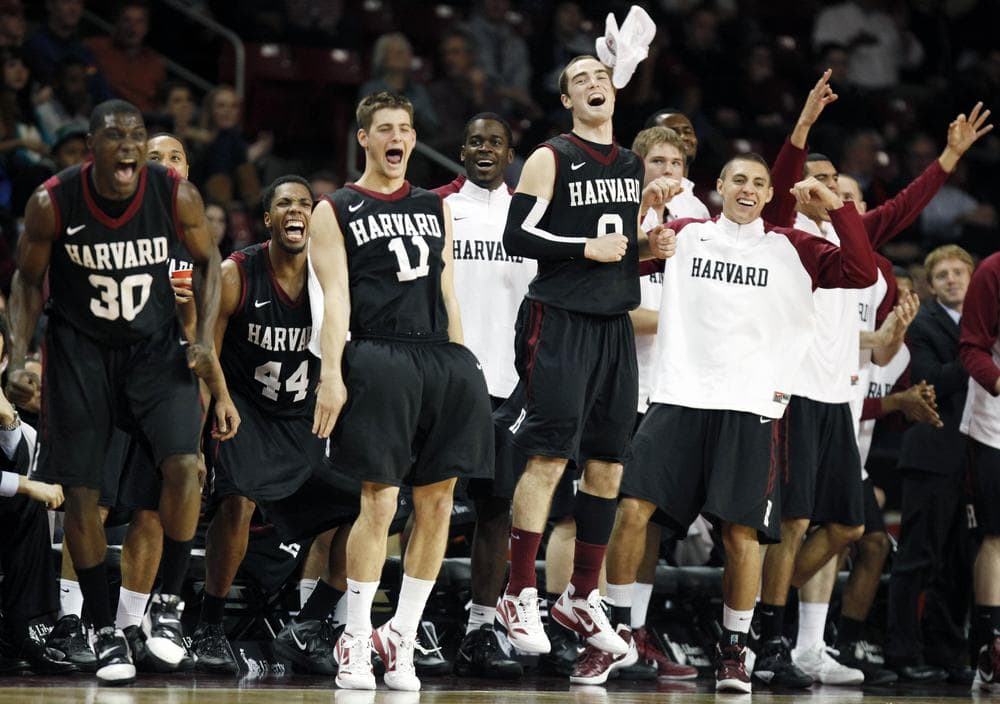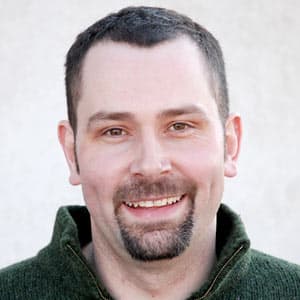Advertisement
A Member Of Harvard's 1946 NCAA Tournament Team Looks Back

Harvard University has had a lot of success in a lot of things ... basketball isn't one of them.
But this season, after upending some elites teams, spending time in national Top 25 polls, and earning their first outright Ivy League championship, the Harvard men's basketball team has reached the NCAA tournament for the first time since 1946.
Today 68 teams make the field. In 1946 there were eight. The 1945-46 Crimson squad took a 19-1 record to New York's Madison Square Garden where they faced Ohio State in the opening round and lost.
Louis Desci, Jr., 89, was on that team. Today, he lives in Englewood, Florida. Only A Game's Doug Tribou talked to Desci by phone about his memories of playing for the Crimson.
Tell me a little bit about yourself. When were you born and where did you grow up?
Well, I was born in Akron, Ohio in 1923 - went to high school there and then went into the service, and was fortunate enough to get into the V-12 program. It was an officer's training course. I wound up at Bucknell University, and the V-12 program phased out, and they transferred V-12 people to various ROTC schools, and I happened to be transferred to Harvard. We had six of us from various schools transfer to Harvard, and the six of us were all either captains of their respective schools' basketball teams, and one fellow was an All-American, Wyndol Gray. We had a ready-made basketball team. The coach was a small fellow called Floyd Stahl - one of the newspapers in Boston wrote a story about us - the headline was "Stahl is Small but His Record is Tall."
Was it a coincidence that all of you were basketball players?
Yes it was. It was quite a coincidence.
Tell me some of your memories of playing college basketball. What was it like in those days?
Well, we played some excellent teams. We played Yale, obviously, which was our archrival. We played Holy Cross, which had an excellent team. We played quite a few good basketball teams at that time, and fortunately had an excellent record - I think we had one loss, which turned out to be to Holy Cross - we beat our archrivals, Yale, that year. Other than that it was just a very exciting and [memorable] experience.
Today the NCAA tournament has 68 teams. When Harvard reached the tournament in 1946, only eight teams played. Did it seem like a big deal to qualify?
Oh, absolutely. I don't think anybody ever imagined that we would be invited to the NCAA tournament. We played in the original Madison Square Garden, and I do recall that the smoke was so thick you could almost cut it with a knife. (laughs)
Harvard lost to Ohio State in the opening round of the 1946 NCAA tournament. What are your memories of that game?
It was a tough game. They were an excellent team. We were unhappy to be knocked out so quickly, but somebody's got to win and somebody's got to lose.
Two of your teammates, Wyndol Gray and Saul Mariaschin went on to play for the Boston Celtics. Did you consider trying to make it as a professional player?
As a matter of fact I tried out for the Celtics in 1948. I didn't make the main team, I was on the farm team - I got sent to Connecticut where the farm team was located. Eventually, when I left the team - I only stayed with them for about three years - I wound up marrying there and raising my family.
What was it like playing in a farm league in those days?
It was good. It was very challenging, exciting. We moved around quite a bit.
World War II interrupted college for many men. Harvard continued to field a basketball team, but for the last two years of the war the schedule was shorter and featured games against non-traditional opponents. How were you and your teammates affected by the War?
I wasn't affected personally that much. I was very fortunate to be in a college program, and the war ended while I was at Harvard. In fact, we had to sign an agreement to continue on [with our college educations], if and when we got mustered out of the service, we couldn't just quit and go home. So we had to finish the semester, at least, and we all wanted to do that because it turned out that the semester [was] during the tournament time. We all wanted to play in that very much, so we all stayed until the end of that semester.
What did you do after you graduated from Harvard?
I wound up getting a job with the Hartford Insurance Group, wound up, as I said, raising my family there. I spent 36 years with the Hartford, became an assistant treasurer, and a director of their payroll operation.
Did it surprise you to see how big professional basketball became over the decades after you were done playing?
What's really surprised me is the size, of not only the professional players now, but also the college players. I played against 7-foot-2-inch people, but they were awkward and clumsy. They didn't have the agility, the speed, and the capability of the tall players today. I was considered tall at 6-foot-2. (laughs)
Were you surprised to find out that this was the first time that Harvard has made the tournament since you made it in 1946?
Well, in a way, I am surprised, but on the other hand, the Ivy League schools don't recruit like other college teams do, and consequently, for them to get an outstanding team would be a little bit difficult.
Do you have one favorite memory of your days of playing basketball at Harvard?
Not really. I have an awful lot to be grateful for. Basketball gave me a lot of opportunities, such as the V-12 program. I think that was primarily because of my basketball ability - it just gave me a lot of good opportunities.
What do you do in your spare time in Florida?
I try to keep busy. I play golf a couple of times a week, I play bridge, I go dancing. I just try to stay active. I can't imagine life being any better.
This program aired on March 14, 2012. The audio for this program is not available.
